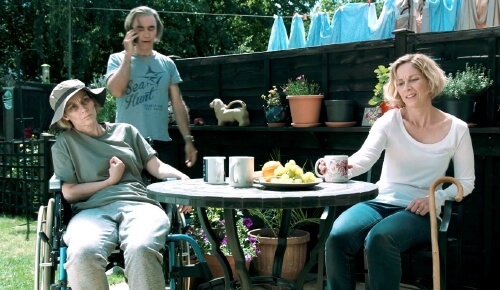Is early discharge from hospital medical negligence?
All healthcare practitioners have a duty of care to their patients. In the hospital setting, there is a duty to provide hospital treatment for as long as is required.
Clinical negligence solicitors may put a strong case forward that negligence had occurred when a patient, who has been discharged from hospital, suffers a deterioration in their condition that would not occurred if they had remained in hospital for a longer period. However, this area of medical negligence, because of premature hospital discharge is a complicated area of law with many grey areas.
With the current, or should we say annual, crisis in the NHS. meaning many hospitals are at breaking capacity, the pressure to discharge patients, having closed many of the small rehabilitation hospitals, to free up acute beds, has never ever been greater. Although the statistics are some five years old, the National Audit Office Report in 2012-13, stated there were more than one million emergency re-admissions within 30 days of discharge. In addition, adverse drug events occur in up to 20% of patients after discharge. One can imagine these stats have remained the same or worsened.
Discharging a patient from hospital requires a great number of checks and balances, from suitable home support through to education about changes to or the introduction of new medications. For people with complex chronic health conditions, a discharge from hospital can be a complicated process.
What about discharge before any rehabilitation and no services following discharge
A Canadian study and recommendations for rehabilitation following a stroke;
Canadian stroke best practice recommendations: Stroke rehabilitation practice guidelines, update 2015
Found, the benefits of specialized stroke unit care are substantial, both in terms of improving activities of daily living and reducing disabilities. As compared to general rehabilitation units, coordinated and organized rehabilitation care in a stroke unit has been shown to reduce mortality and hospital length of stay and to increase functional independence and quality of life.
Within a stroke unit, care is provided by an experienced interprofessional stroke team (including physicians, nurses, physiotherapists, occupational therapists, speech therapists, etc.) dedicated to the management of stroke patients,
For every 100 patients receiving organized inpatient interprofessional rehabilitation, an extra five return home in an independent state.
Are stroke victims, who are discharged from hospital, medically stable, without undergoing intensive rehabilitation victims of medical negligence. Are the rehabilitation specialists such as physiotherapists, Occupational Therapists and Speech Therapist negligent in not providing the optimum treatment, or are those signing the discharge forms negligent by discharging the patient before the rehabilitation experts are able to provide their treatment. Who should the victim pursue, if anyone?
This month, February 2018, the Chartered Society of Physiotherapy, in their on-going campaign to highlight the need of rehabilitation after a stroke stated;
Prof Karen Middleton, chief executive of the CSP, said:
‘More lives than ever are being saved, which is very welcome news, but it is critical that we do not then waste those lives after stroke.
‘Two-thirds of people leave hospital with a disability and 45% of people who leave hospital after having had a stroke feel abandoned when they cannot access high quality rehabilitation services.
‘We must do more for those people to ensure no-one misses out, and with the average age of stroke survivors falling, the case is ever more urgent.
‘We cannot have people losing 20 years or more of their working lives for entirely avoidable reasons.
‘Rehabilitation gives people back their independence and helps them get back into work and it must be available to all who need it.’
Is it negligent not to provide optimum rehabilitation
Check out this video from The Chartered Society of Physiotherapy called “Rehab Matters” then answer the question.
https://www.youtube.com/watch?v=NdIf9s3b2AU
The difference is being totally dependent or totally independent. However, Is it negligent?


Recent Comments